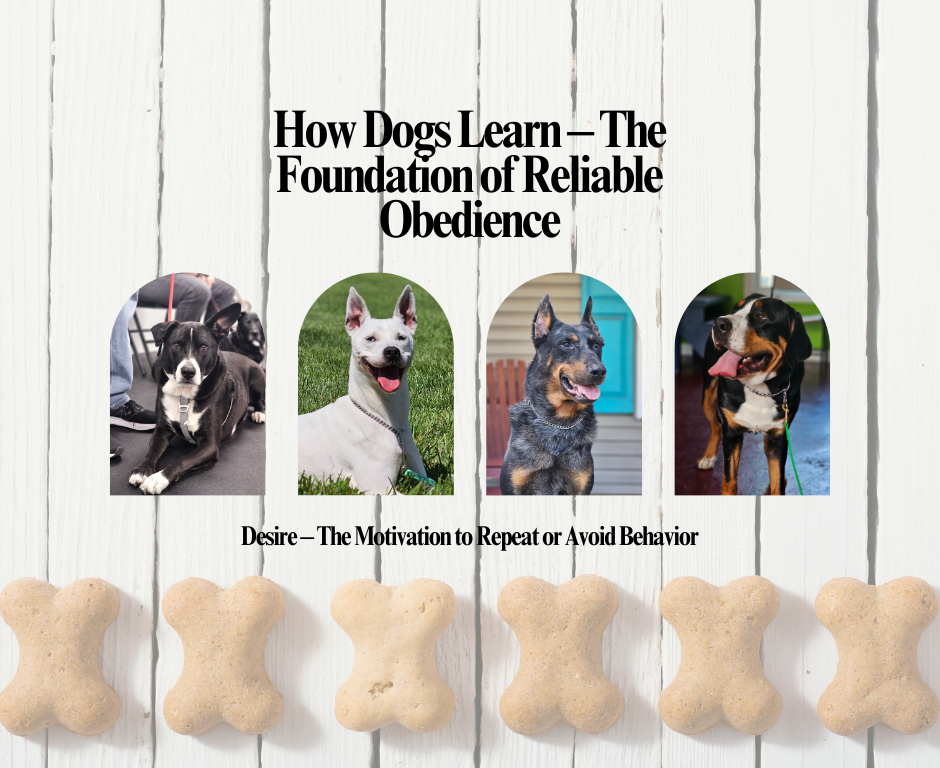How Dogs Learn – The Foundation of Reliable Obedience - Part 3
April 17, 2025

Dogs don’t make decisions based on morals or rules. They do what works for them. If sitting quietly on a place cot leads to peace, praise, or release from pressure, they’re more likely to choose it again. If barking at the fence leads to leash pressure, a timeout, or the removal of a reward, that choice becomes less desirable.
Training that incorporates thoughtful consequences and clear feedback teaches dogs not just what to do, but why it benefits them to do it.
One of the most powerful ways to build a reliable dog is to offer them real choices and then guide them toward the right one. Instead of micromanaging or luring every behavior, allow the dog to experiment and then follow through on the consequence of their choice.
When a dog is consistently allowed to make decisions and experience the result, they begin to form preferences. They develop desire for the behaviors that make life easier and more rewarding.
A common misconception is that a well-trained dog obeys out of a desire to please. In reality, dogs repeat what feels good or resolves pressure. They make choices based on results. If good choices consistently lead to better outcomes, your dog becomes internally motivated to choose well—whether you're around or not.
You want a dog that comes when called, even when there’s a squirrel in the yard. That doesn’t come from command repetition aloneit comes from the dog’s understanding that coming to you works better than chasing a squirrel. When a dog desires the outcome of a behavior more than the distraction in front of them, you’ve created real-world obedience.
This is what turns training into trust.
The long-term goal of training isn’t just compliance. It’s creating a dog who prefers good behavior. Desire is what drives that shift. When outcomes are predictable and fair, when the dog has been allowed to experience consequences and learn from them, they start choosing the right thing on their own.
Desire is what transforms obedience into habit. It’s the product of clear structure, consistent feedback, and the freedom to choose. When your dog understands the options and consistently benefits from making good decisions, they become thoughtful, reliable, and genuinely motivated to do the right thing.